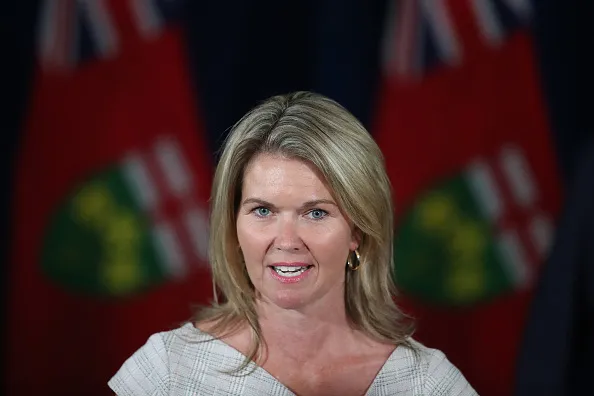In a move that’s left Ontario’s post-secondary sector reeling, the provincial government has slapped a sudden moratorium on all new international activities by colleges. The announcement came in a memo from outgoing Minister of Colleges and Universities, Jill Dunlop, on her last day in the post, as she was shuffled to become the new Minister of Education.
Dunlop’s memo, dated Friday, cites a need to focus on Ontario’s "core mandate" of delivering education that meets local needs. However, it’s unclear what specifically triggered this abrupt decision. The memo indicates that the Ministry of Colleges and Universities will undertake a thorough review of the Entrepreneurial Activities Minister’s Binding Policy Directive, a key framework guiding colleges’ international and entrepreneurial endeavors since 2003.
But here’s the kicker: nobody seems to know exactly why this is happening now, or what the province hopes to achieve with this clampdown. Colleges are suddenly barred from entering into any new international agreements or contracts, whether it’s setting up campuses abroad, licensing curriculum, or even corporate training deals outside Canada. While existing agreements can stay in place, any plans to expand them are now frozen solid.
The timing of this decision couldn’t be worse. Ontario’s colleges, like many across Canada, have already been hit hard by financial struggles. The federal government’s recent cap on international student admissions, driven by concerns over housing shortages and the integrity of the international education program, has only added fuel to the fire. Programs have been slashed, and staff layoffs are becoming alarmingly common.
Now, with this new restriction on international activities, the situation is looking even bleaker. International students, who pay three to four times the tuition fees of domestic students, have become a crucial revenue source for these institutions. The fear is that without the ability to pursue new international partnerships or entrepreneurial ventures, colleges might struggle even more to keep their doors open.
Colleges Ontario, the body representing the province’s 24 public colleges, is sounding the alarm. Marketa Evans, president and CEO of the organization, expressed deep concern about the sector’s future. “These entrepreneurial initiatives help offset costs to ensure that college programs stay open for Ontarians,” she said. “We at Colleges Ontario are increasingly concerned about the strength of the sector and its ability to continue to deliver for Ontarians.”
The murkiness surrounding the government’s intentions has left many within the post-secondary sector scrambling for answers. A source within the sector, who asked to remain anonymous, said, "We're all working collaboratively to figure out, ‘Hey, what's the intent here? How do we work? How do we do this appropriately? And where is this coming from?’ It’s like, the rug’s been pulled out from under us, and we’re just trying to regain our balance."
Adding to the confusion is the fact that Dunlop has been replaced by Nolan Quinn, the new Minister of Colleges and Universities, who will now have to manage the fallout from this decision. Whether Quinn will carry the same torch or shift course remains to be seen, but the uncertainty is palpable.
The Ontario government has faced long-standing criticism for underfunding post-secondary education, pushing colleges and universities into a position where they’ve become increasingly reliant on international students to balance their books. The latest move only seems to exacerbate these challenges, leading to more questions than answers.
As the sector grapples with this new reality, colleges are urging the government to clarify its position and offer a path forward that allows them to continue delivering quality education, both locally and internationally. Until then, the freeze on international activities is likely to create more than just a chill in the halls of Ontario’s colleges—it's a full-blown ice age.

